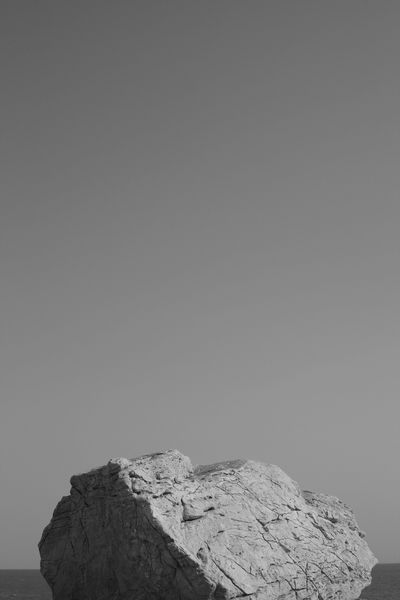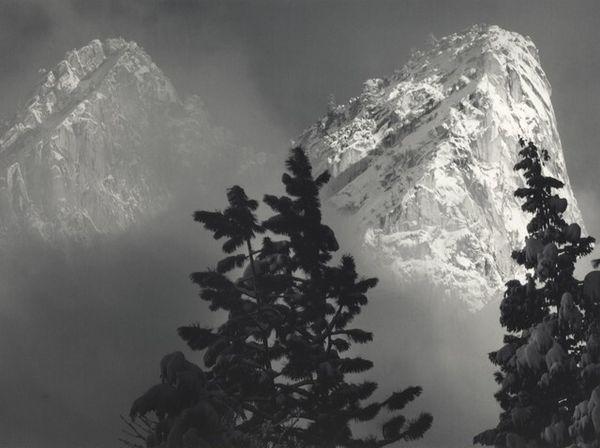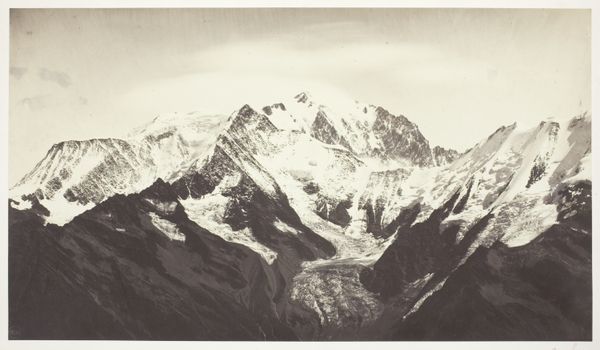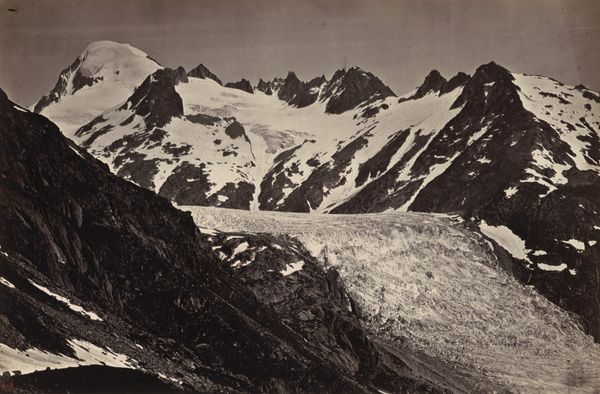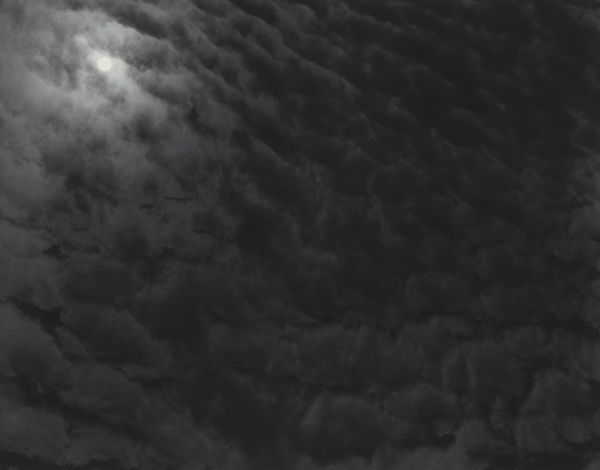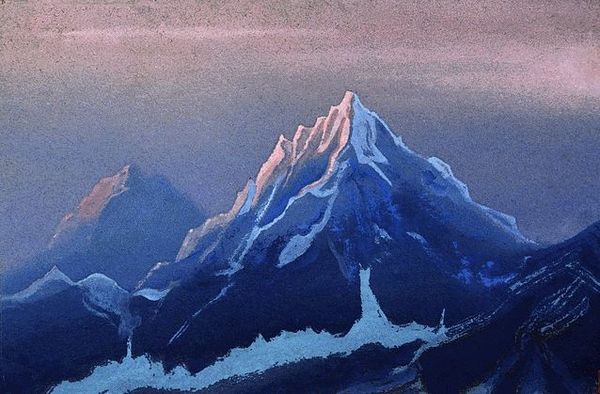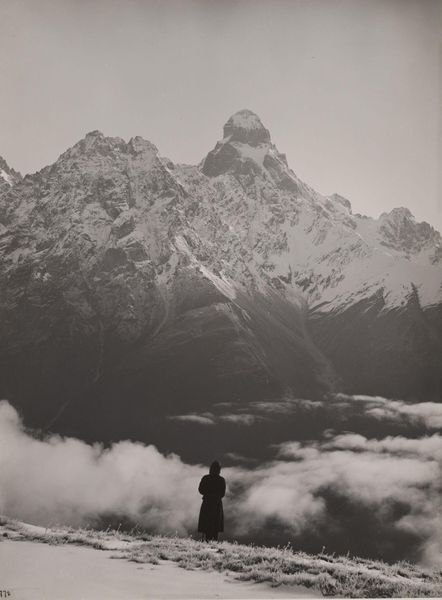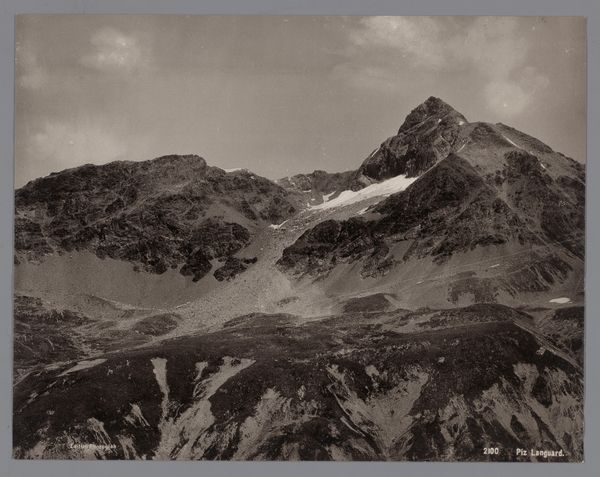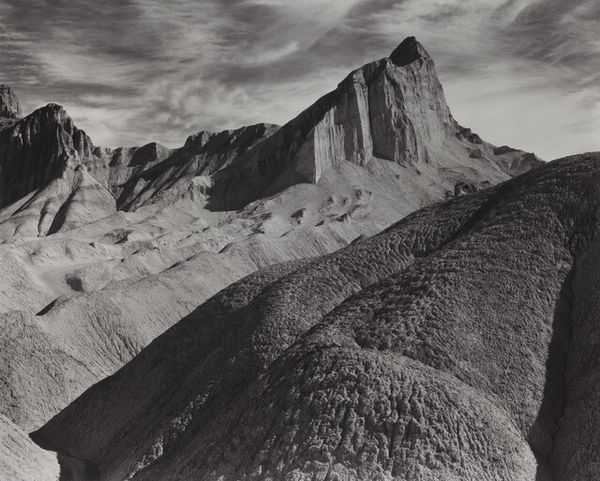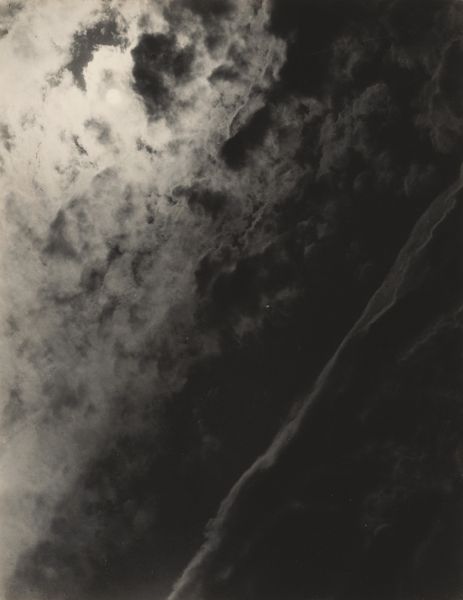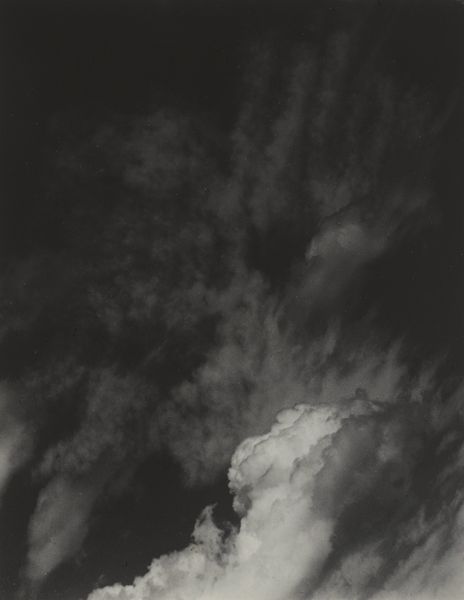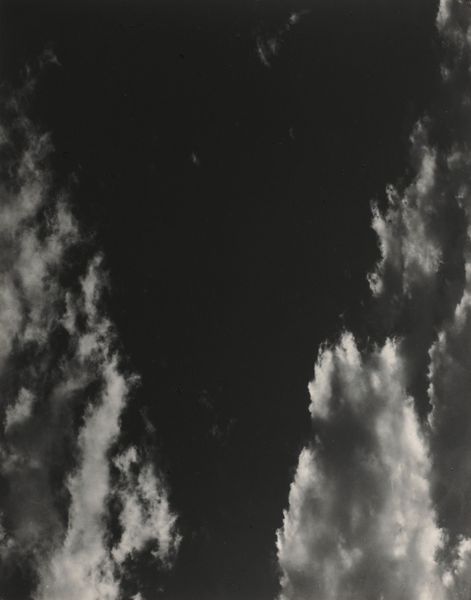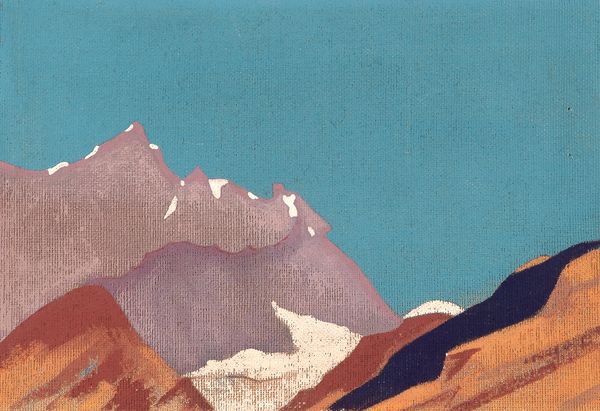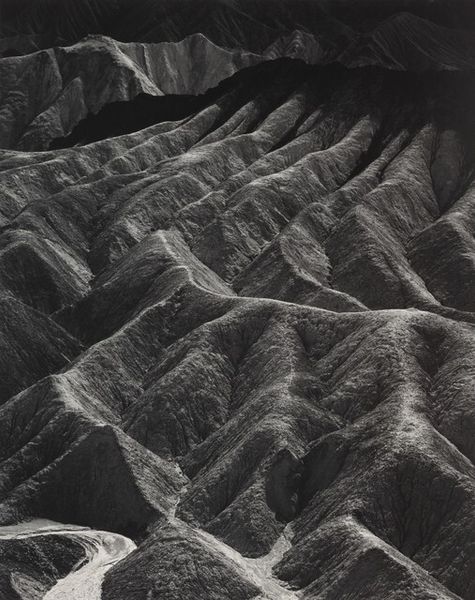
photography
#
landscape
#
photography
#
geometric
#
mountain
#
realism
#
monochrome
Copyright: Creative Commons NonCommercial
Curator: This striking photograph, simply titled "mountain," was taken by Chaokun Wang in 2017. Its stark monochrome palette really captures the viewer's attention. Editor: Immediately, I'm struck by how isolated it feels. The mountain, rendered in sharp detail, dominates the lower half, while the vast black expanse above feels almost ominous. It’s minimalist yet powerful. Curator: Indeed. The geometric precision of the mountain against the void emphasizes its grandeur. It is also rooted in a history of representing sublime landscapes and power, with the mountain as both a geographical reality and cultural construct, reminding us of the environmental questions about glacial melting. Editor: And thinking about this through a feminist lens, it almost subverts traditional mountain imagery. There's an absence of the typical triumphant mountaineer, foregrounding the vulnerability of nature itself in a climate-anxious age, without being explicit about the source of the ecological disruption. Curator: Exactly, the absence of human presence makes the image so striking, allowing viewers to meditate on a more profound relationship between the human and non-human worlds. Editor: The high contrast exacerbates the power dynamics too, emphasizing the imposing structure of the mountain against a dark, empty background; its imposing nature can trigger thoughts around geopolitical hierarchies. The black and white allows for little nuances to the interpretation. Curator: The photograph definitely speaks to the artist’s sensitivity to form and their technical skill in capturing such a nuanced rendering of light and shadow on snow and rock. This photographic piece serves as both aesthetic achievement and sociopolitical observation. Editor: For me, this picture lingers in the mind as a sombre monument and quiet premonition, asking crucial questions about identity, existence, and environmental impact, especially when divorced from context. Curator: Well, looking at it from a traditional historic angle, Wang has given us much to think about beyond first glance. Editor: Agreed; it’s that quiet power that makes it stick with you, prompting a much larger dialogue about landscape photography as social practice.
Comments
No comments
Be the first to comment and join the conversation on the ultimate creative platform.
